The People Behind the CROWN Act
You already know the story—how locs, braids, and afros have been called “unprofessional” for no reason other than bias. You’ve felt the double takes, the coded feedback, the pressure to adjust.
The CROWN Act exists because people were bold enough to say, we’re not doing this anymore.
Short for Creating a Respectful and Open World for Natural Hair, the CROWN Act makes it illegal to discriminate against someone based on their natural hair or protective style. But the law itself is only part of the story.
This post is about the people who pushed it forward. The pioneers who used their platforms, policy, and personal stories to make sure no one has to shrink their crown to fit in.
Let’s give them their flowers.

Image Credit | Source: ABC News
Senator Holly J. Mitchell brought the CROWN Act to the California State Senate floor, which was eventually passed with a bipartisan 37-0 vote. This made California the first state to pass a legislation against natural hair discrimination.
Get updates about Senator Holly J. Mitchell
Their stories remind us that when we truly imagine change, we are capable of making anything happen.

Image Credit: Tom Williams/Getty Images | Source: Teen Vogue
Congresswoman Ayanna Pressley isn’t new to this. She’s been one of the loudest and most consistent voices pushing the CROWN Act forward in the House. She’s not just checking boxes—she’s showing up for us. From protecting our right to wear our hair without judgment to advocating for Black women’s health and dignity, she’s made it clear: we deserve to be seen, heard, and protected as we are. No code-switching. No explaining. No apologizing. Ayanna Pressley is fighting for policies that reflect the truth we already know—our hair is powerful.
Get updates about Congresswoman Ayanna Presley
3. Congresswoman Ilhan Omar

Image Credit: Getty Images | Source: BBC
Congresswoman Ilhan Omar is a co-sponsor of the CROWN Act working together with other legislators. Her efforts in pushing the legislation in the House has been impactful to combat race-based hair discrimination on a national level.
Get updates about Congresswoman Ilhan Omar
4. Congresswoman Bonnie Watson Coleman

Image Credit | Source: WNYC
Congresswoman Bonnie Watson Coleman is one of the people who reintroduced the CROWN Act in the House of Representative last May of 2024. Her leadership helped in affirming that discrimination against Black hair is a discrimination against Black people, and it has to stop.
Get updates about Congresswoman Bonnie Watson Coleman
5. Senator Cory Booker

Image Credit | Source: Pratham USA
Senator Cory Booker played a key role in bringing the CROWN Act to the U.S. Senate, helping turn the fight against hair discrimination into a national policy issue. His leadership has been essential in pushing for federal protections and keeping the issue front and center on Capitol Hill.
Get updates about Senator Cory Booker
6. Congresswoman Barbara Lee

Image Credit | Source: The Oaklandside
Congresswoman Barbara Lee, who has personally faced unsolicited and disrespectful comments about her natural hair—even while serving in Congress—co-sponsored the CROWN Act to help protect Black people from hair-based discrimination. Her advocacy is rooted in both her lived experience and a deep commitment to equity and justice.
Get updates about Congresswoman Barbara Lee
7. Marc Morial

Image Credit | Source: The Daily
Marc Morial, CEO of the National Urban League, is a founding member of the CROWN Coalition and a strong supporter of the CROWN Act. Through his leadership, he’s helped push for legal protections that ensure Black people can wear their natural hair without fear of judgment or discrimination.
Get updates about Marc Morial
8. Assemblywoman Angela McKnight

Image Credit | Source: CAWP
Assemblywoman Angela McKnight is an advocate for the CROWN Act and supported the state-level legislation against hair-based discrimination. Her contributions led to the passage of the Act in New Jersey.
Get updates about Assemblywoman Angela McKnight
9. Governor Phil Murphy

Image Credit: Matt Rourke / AP file | Source: NBC News
Phil Murphy is the Governor of New Jersey who signed the CROWN Act, which amended the New Jersey Law Against Discrimination, adding discrimination based upon “traits historically associated with race, including, but not limited to, hair texture, hair type, and protective hairstyles”.
Get updates about Governor Phil Murphy
10. Adjoa B. Asamoah

Image Credit | Source: Temple University
Adjoa B. Asamoah is a political strategist, organizer and activist. She developed the legislative strategy for and leads the CROWN Act movement. She collaborated with legislators and organizations to promote the Act across various states.
Get updates about Adjoa B. Asamoah
11. Assemblywoman Tremaine Wright

Image Credit | Source: Crain’s New York Business
Assemblywoman Tremaine Wright has always stood up for her community, and that includes helping push the CROWN Act forward in New York. She sponsored the bill, helping make it clear that natural hair discrimination is real—and it’s wrong. Thanks to her leadership, the CROWN Act was passed and signed into law by Governor Andrew Cuomo, making New York one of the first states to protect our right.
Get updates about Assemblywoman Tremaine Wright
12. Senator Jamaal Bailey

Image Credit | Source: Bronx Dems
New York State Senator Jamaal Bailey sponsored the CROWN Act together with Assemblywoman Tremaine Wright in New York. Although California was the first to pass the Act, it was New York that enacted it first. NY S6209, presented by Senator Bailey, prohibits discrimination based on natural hair or protective hairstyles relating to race, which for specific purposes is defined to encompass ancestry, skin color, ethnic group identification, and ethnic background. “Protective hairstyles” to include, but not be limited to, such hairstyles as braids, locks, and twists.
Get updates about Senator Jamaal Bailey
The CROWN Act is a crucial step toward ending hair discrimination and challenging the long-held biases tied to natural hair textures and protective styles. It protects people from being judged or penalized for how their hair naturally grows or how they choose to wear it. Still, nearly half of Black women in the U.S. live in states where these protections don’t exist. That’s not equity—it’s a gap that needs closing. It’s time for every state—and the federal government—to get on board and make hair discrimination a thing of the past.
Want to help? Sign the petition at theCROWNact.com.

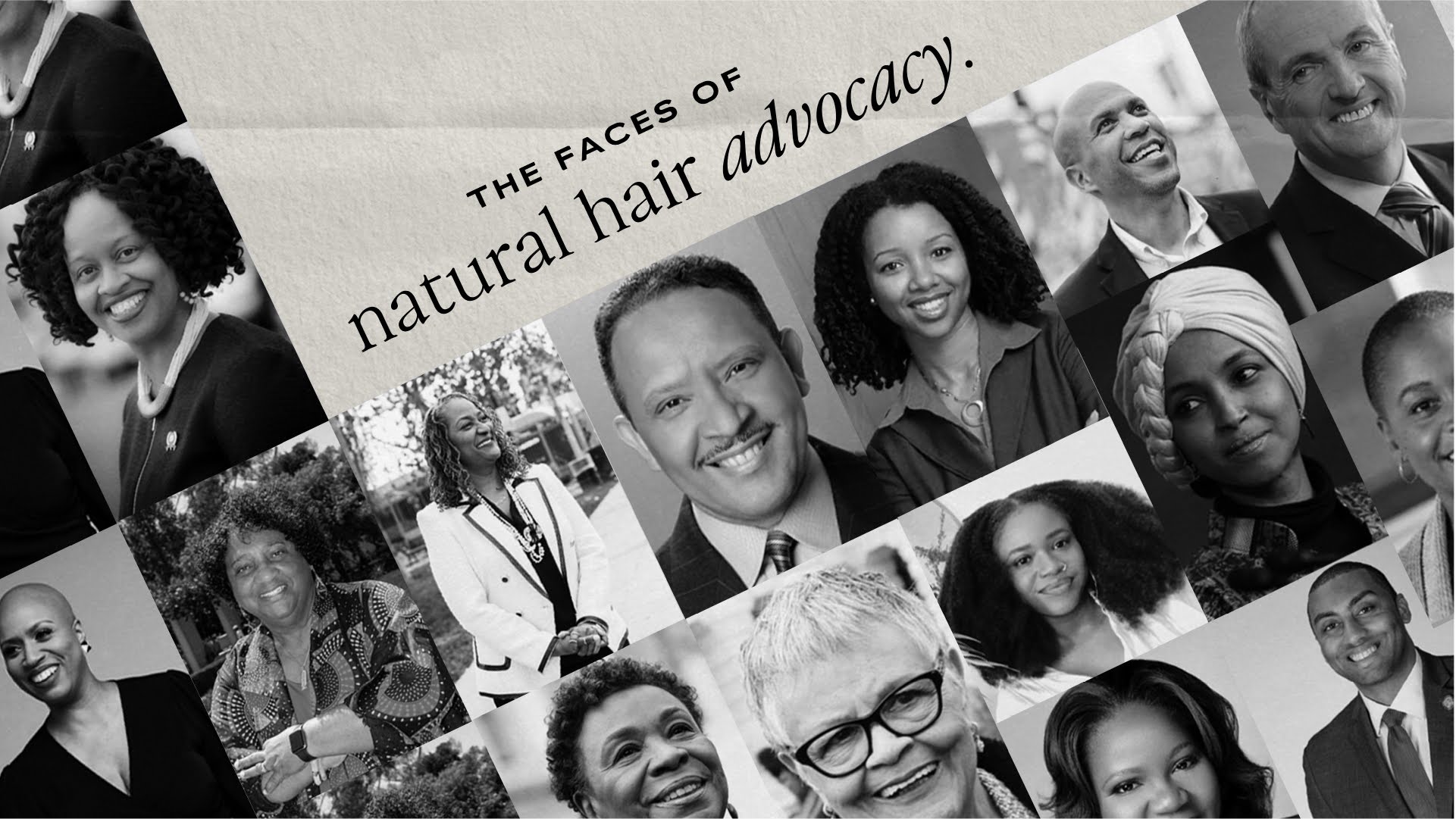
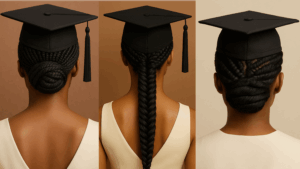
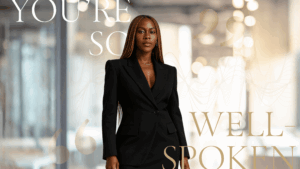
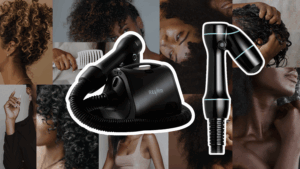






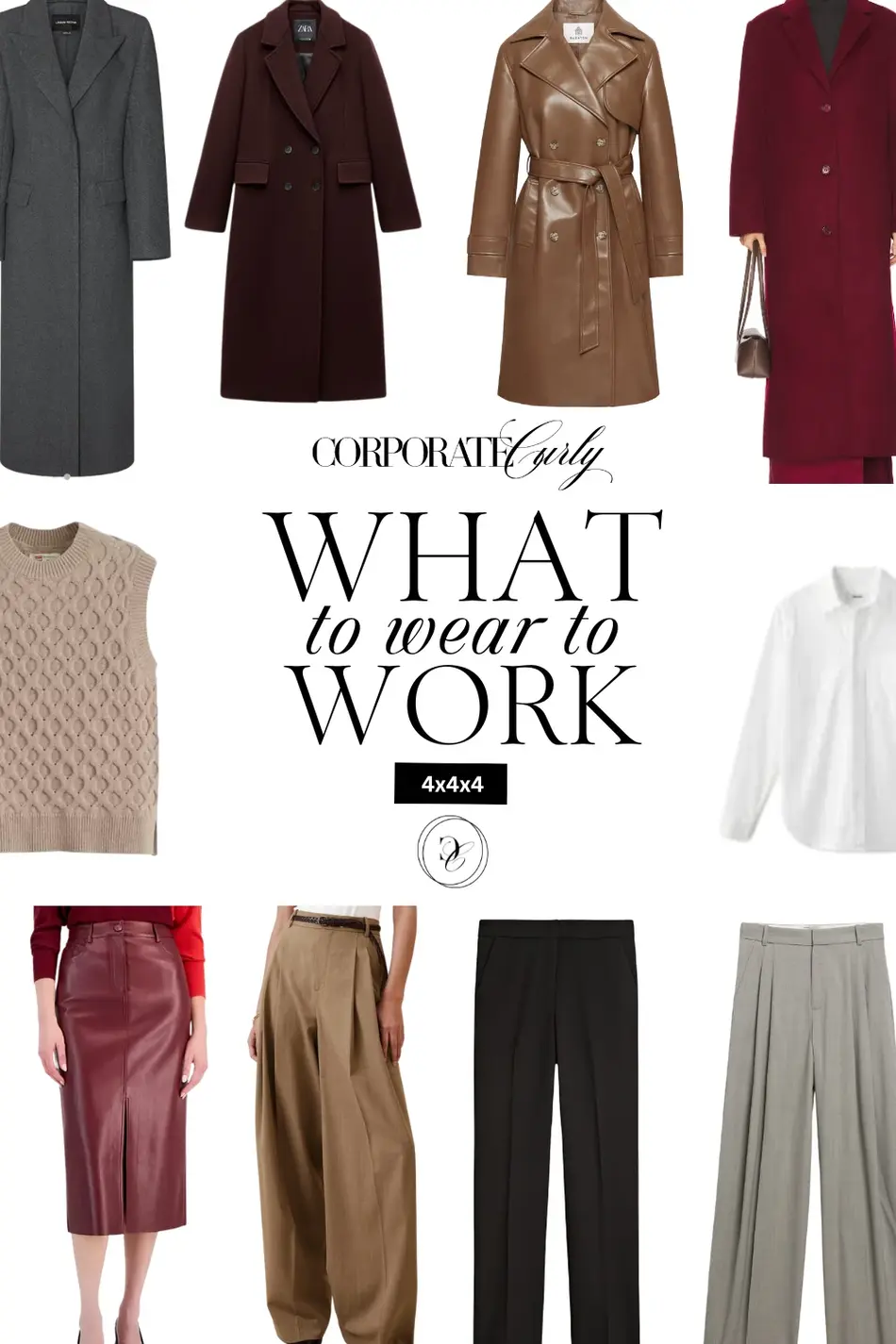
Share This Story
Would love your thoughts, please comment.
Back To Top
Popular On The Blog
What is Business Casual, Anyway?
Business casual is no longer one-size-fits-all. From tech startups to law firms, what counts as ‘appropriate’ changes with every industry. This guide breaks it all down—so you can show up polished, confident, and true to your style, wherever you work.
Spring is Here. Here’s How to Wake Your Wardrobe Up (And Look Like You Run the Place)
Myrtle Culotte Trousers in Cream $ 225 Oval Shoulder Bag US$ 89.99 Italian Leather Slingback
The Ultimate Guide to Women’s Workwear Stores for Every Budget
Looking to elevate your work wardrobe? Whether you’re building your first office look or updating your closet with stylish staples, this guide rounds up the best stores for women’s workwear—across every price point.
Unpacking the BEIS Work Tote: Full Review, Favorites, and What’s in My Bag
Everything you need to know about the BEIS Work Tote Bag, including features, customer reviews, comparisons, and why it’s worth every penny.
Crazy Curls & Career Confessions
Share your wildest work or hair story anonymously. I’ll share advice via the career chats page on how to navigate them.